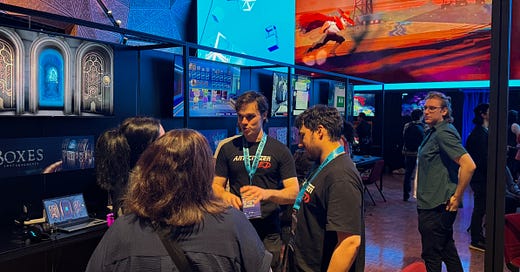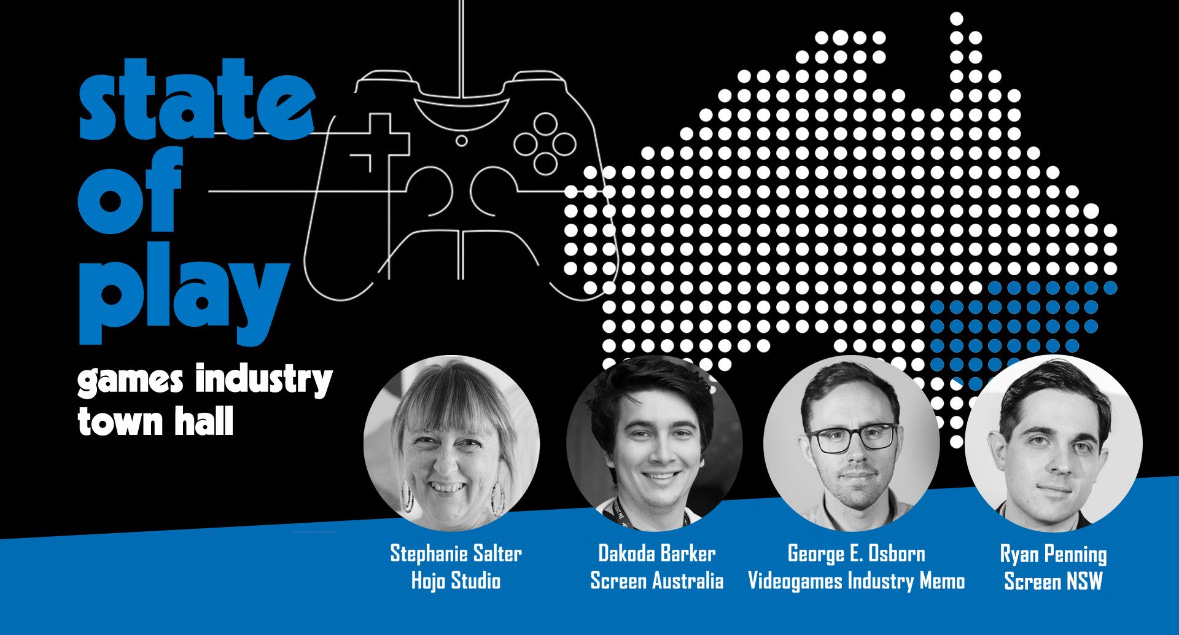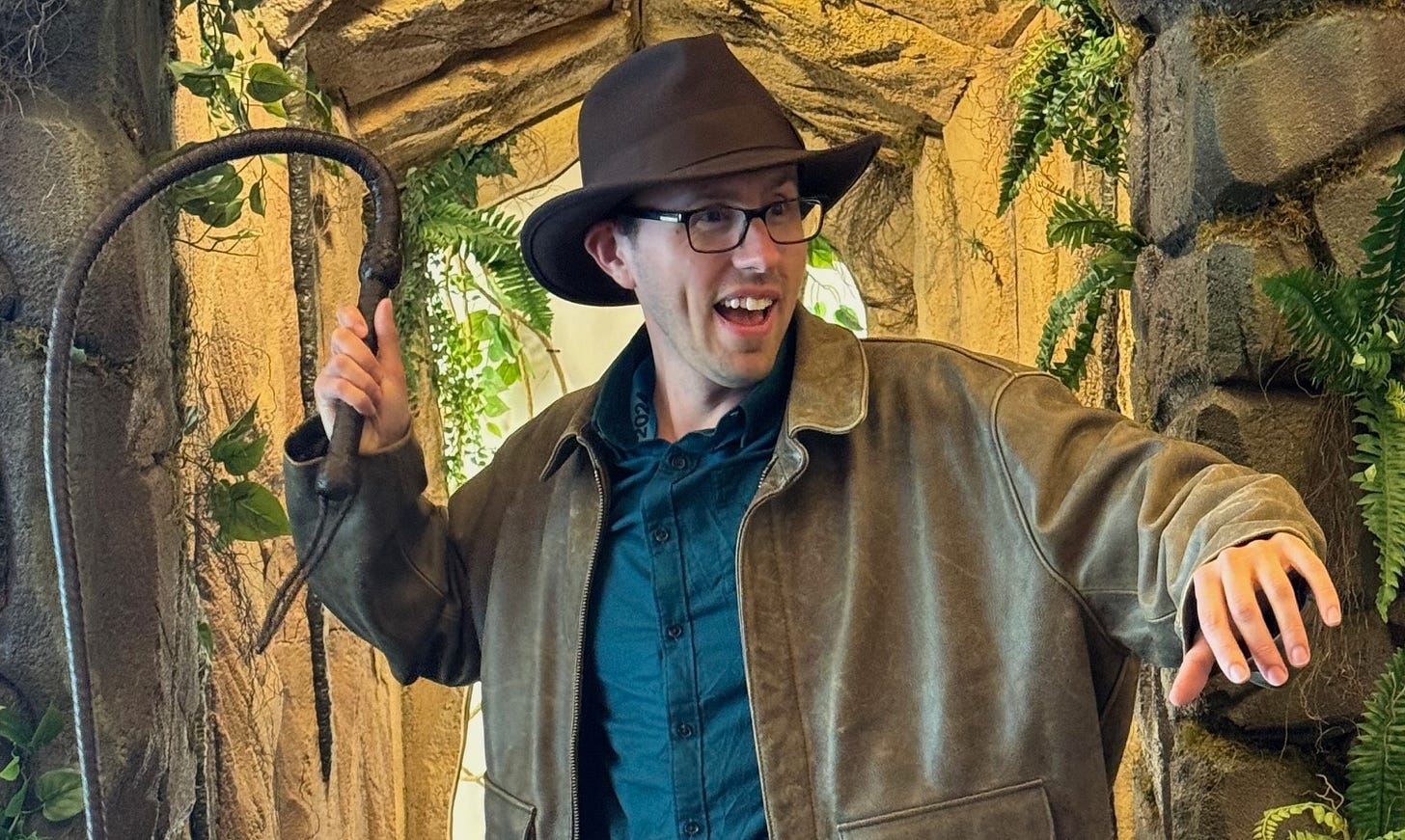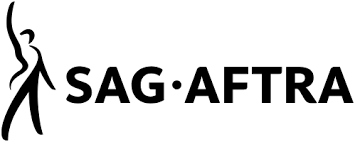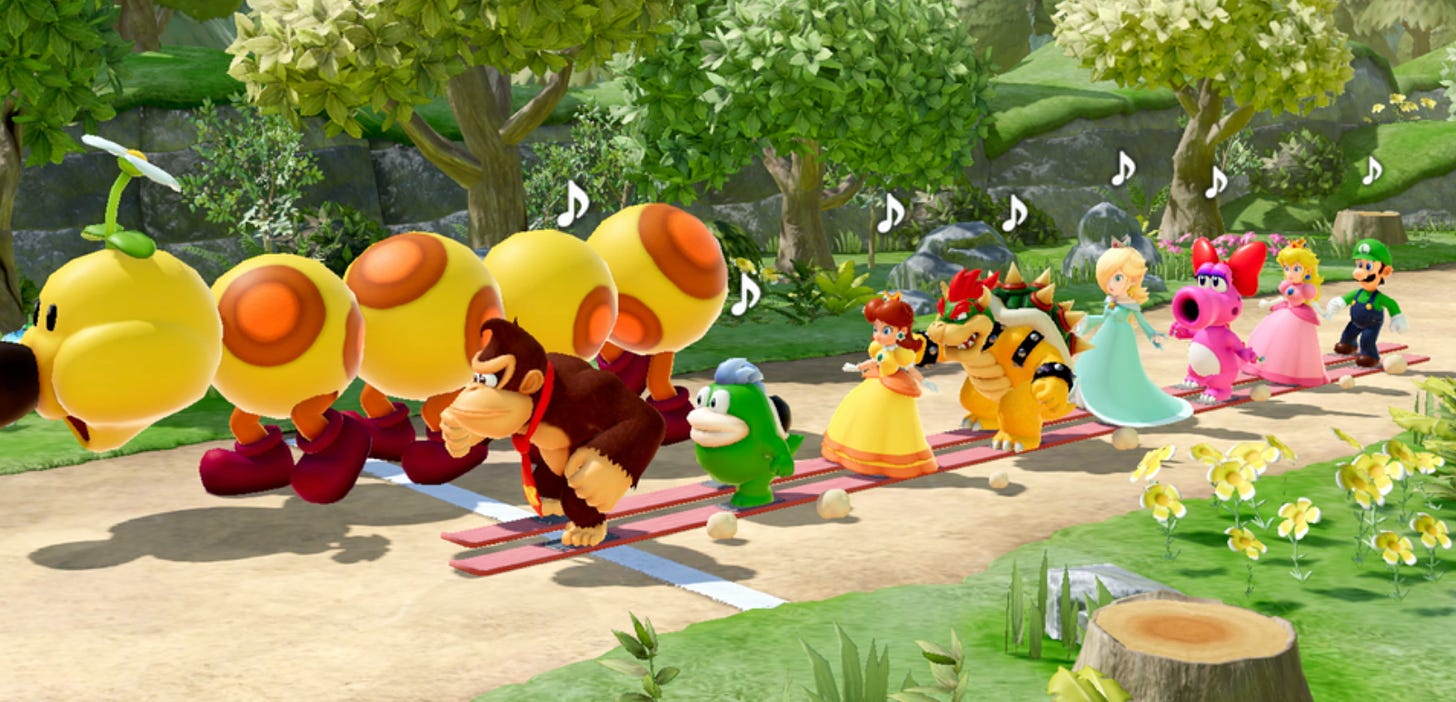SXSW Sydney: three things I learned from this year’s festival, 17/10/2024
There’s something not bonza in the state of New South Wales
Sydney’s games scene, VR and healthtech and an Indiana Jones photo op dominate my SXSW
SAG-AFTRA returns to the table over the video game voice actor strike
Super Mario Party Jamboree heads up the week’s releases
Howdy VGIM-ers,
Thank you for all of the kind words about last week’s World Mental Health Day opener. It was heartening to hear it resonated with so many of you and I hope you all benefitted from some friendly reconnection last week.
Before we head into this week’s big read, I’ve got three things to update you on.
First up, the full schedule for the AI and Games Conference on Friday 8th November has been confirmed and it is looking like a corker.
After promising me that they’d pull together a line-up that showed the breadth of the AI and games field, Tommy and the advisory board casually created an agenda that features leading speakers from companies like Saber Interactive, Epic Games, Microsoft, Sony AI, Riot Games, Guerrilla Games, Build A Rocket Boy, Hidden Door and Unity to name just a few. Pretty neat, eh?
Unfortunately, most of the tickets for the event have sold out and there is a hefty waitlist in place for any of the remaining tickets. It’s like getting tickets for Oasis, except much nerdier and we’ve made a lot less profit on it.
But the good news is that there are two ways you can still get in.
You can join by becoming a sponsor of the event alongside AWS for Games, Creative Assembly, Riot Games, Arm, Kinetix and Bitpart.AI or by registering for a press pass if you’re part of the media corps.
Email george@half-space.consulting if either of those routes are of interest.
Second, if you want a ticket to the VGIM First Birthday drinks this is almost certainly your last chance to grab one before they’re all gone given that, at time of writing, there were only three spaces left.
Join me, our sponsor Big Games Machine and a barrel full of VGIM readers for a celebratory drink by getting your ticket here.
Finally, I am taking next week off because I’m more burnt out than racing games in the early ‘00s.
I’m going to be spending next week recovering from my flight home, binging Only Murders in the Building and puffing out my cheeks every time Sally Rooney’s Intermezzo emotionally devastates me (every other page, then).
Therefore, next week’s VGIM will be a slimline special with just a big read, events and game listings to allow me to schedule it before I’m wheels-up next week.
But given that it’ll still have an exclusive and the launch of my favourite annual VGIM tradition, it’s going to be a goody - I promise.
Right, that’s me done for now. Reward yourself with one final big read from Down Under, I dare you.
The big read - SXSW Sydney: three things I learned from this year’s festival
South By Southwest (SXSW) Sydney returned for its second year, with the Australian spin-out of Austin’s premier creative festival kicking off in the heart of the city at the start of the week.
The event brings tens of thousands of people together to learn from industry experts in fields as diverse as the arts and healthtech, network furiously with other professionals across a range of fringe events and wonder whether we should have pretended our companies were all called “The End is Nigh” to make the most of the sandwich board sized conference badges.
As with all SXSW events, the festival featured a dedicated video games strand for those of us immersed in the field of interactive entertainment.
But what exactly did I learn from this year’s SXSW regarding the local games sector? What else did I glean about the Australian industry and the wider games world? And just how good do I look in a Stetson? Let’s find out.
New South Fails to inspire confidence in its local games industry
Over the past few weeks, I’ve discussed a lot of the positivity around the Australian games scene. But while plenty of people are talking up the prospects of developers in Victoria and Queensland, the mood music in New South Wales - the state in which Sydney sits - is being played in a minor key.
On the face of it, that may seem a little surprising. The state is home to 25% of the video games businesses based in Australia, according to research by IGEA. And while it does have plenty of independent video games businesses to call its own, New South Wales is also a base for many of the major international developers (Riot, Ubisoft and Bethesda) that other states wished they could attract.
The problem, as I discovered during a town hall session discussing the state of the sector on Thursday morning, is that there appears to be little trust between the games industry and the state of New South Wales regarding long-term support for the sector.
While there have been broader concerns about a lack of interest in the state towards its games sector - as evidenced by the opening of this submission to it from the Australian trade association - the industry’s relationship with local Government severely soured after a major flashpoint last year.
On 10th September 2023, The Sydney Herald reported that the state government was withdrawing $190m of support for the local screen industries - including the state’s Digital Games Development Rebate Programme, which offers game projects north of $500,000 Aussie dollars a handy 10% rebate - to plug a hole in its budget.
The state, fortunately, did not go ahead with the cuts. Within two weeks of announcing plans to withdraw support, the state flip-flopped on the cuts harder than a sandal enthusiast at Bondi Beach and restored the funding following furious lobbying from all the affected screen sectors.
However, the decision to try to cut the funding has cast a long shadow over the local sector - raising questions amongst local developers about whether they can comfortably remain in the state if its support for the industry is wavering.
And while there was the welcome news in New South Wales’s latest screen sector strategy that games projects with a lower budget of $350,000 AUD will be able to claim the state’s rebate, the lack of depth to the state’s wider policy to develop the industry proved almost as disappointing as its failure to put a single image of a game on the front of a strategy purportedly designed to support the industry.
If Victoria is a case study for the kind of growth a government can unlock by providing consistent, thoughtful and targeted support to games businesses, New South Wales shows the damage that inconsistency can do.
Restoring confidence is a must if it wishes to grow further in the years to come.
Plugging Australia’s professional services gap
Australia’s domestic video games industry has a lot to commend it. The depth of talent and creativity within the country is remarkable. The combination of federal and state reliefs in the right parts of the country can make financing a game remarkably cost-effective. And although Australia itself will always be isolated by pesky geography, its developers are increasingly adopting a global outlook that is setting them nicely for the future.
What the domestic industry is missing is better support from the private sector. In contrast to somewhere like the UK, where a cavalcade of banks, law firms and other professional service providers have evolved products or services to support games companies, Australia’s games sector lacks the infrastructure around it to push it to the next level.
Partly, there’s a cultural element at play here. The UK’s long reputation as a hub for professional services has given it an advantage over its Antipodean counterpart. This means that the established network of banks, law firms and corporate advisors have been well placed to evolve relevant services to growing games businesses, giving local companies a leg up for growth.
But mechanically, one Australian representative argued to me that the UK’s adoption of Video Games Tax Relief - now the Video Games Expenditure credit - over a decade ago spurred those services into action by creating both credibility around the industry and the foundation for relevant services (e.g. offering loans to businesses with successful VGTR claims to allow them to get cash early) that built up a relationship between the two.
Australia, by comparison, has little of this. While some specialist providers do exist, it lacks the wider corporate support that somewhere like the UK has benefitted from for a number of years: limiting its access to both directly relevant services and indirect perks like privately funded accelerator programmes.
For now, that’s a pain. But equally, there’s an opportunity for change. The introduction and payment of the first tranche of rebates through Australia’s Digital Games Tax Offset has given the territory its equivalent of VGTR for professional service providers to tap into - creating the conditions for those businesses to build a productive relationship with the sector.
But the country either needs service providers to be brave enough to step into the space of their own volition or to build relationships themselves.
And until it works out exactly how that’s done, the opportunity provided by a layer of professional services could go untapped for some time.
Twitching to be considered more than just games
Finally, you can learn a lot about what a business is thinking by where it is positioned within a conference schedule.
I know that the vast majority of you will have little to no reason to engage in a deep textual analysis of an event agenda.
But for those of you who like snuffling about for clues - or who just enjoy overthinking - keeping an eye on where a business chooses to tell its story at an event can say quite a lot about where it is going.
Twitch provided a perfect example of this at SXSW. Dan Clancy, CEO of Twitch, joined a number of streamers such as Jackhuddo, Kwoli and Hayzee to discuss how they have streamed their way to success (and what they’ve done to support their community along the way).
All of the participants in the session had a clear tie to video games through what they stream on the platform or through the content they share on the social media platforms.
But the session, and two other talks featuring Clancy later that day, took place on Wednesday - one day ahead of the official games track kicking off on Thursday morning.
I have to admit that one of the reasons why this happened was clearly an issue of space. UTS, the venue for most of the games content, did not have a large enough stage to host all of the people who’d cram in for a talk from Twitch’s CEO.
But while there almost certainly was a logistical element to the scheduling decision, Clancy’s presence outside of the games programme nevertheless demonstrates an interesting contradiction at the heart of Twitch’s business.
On the one hand, games have been central to its fortune. In 2023, nine of the top ten most watched categories on Twitch were for games like GTA V, League of Legends and Valorant - with viewers racking up over 6bn hours across those titles.
But despite the sustained interest in games on the platform, reports across the year have suggested that Twitch has hit something of a ceiling in regards to the impact of interactive entertainment on its bottom line - leading to job cuts and budget cuts across the business as the losses mount up.
So Clancy’s presence outside of the games stream is illustrative of the balancing act that Twitch must get right to continue its growth.
It wants to retain its dedicated games community to maintain revenues, while promoting them as a source of inspiration for the wider community.
But it also has to break free of its perception as ‘games only’ to discover whether it can grow enough of an audience for long form content to stave off the challenge from short form rivals like TikTok, who have eaten into its audience and time spent on the platform successfully.
By being part of SXSW but outside of the official games track, Twitch is making a statement that it thinks it does exist beyond games. The question is whether audiences, and its business partners, believe it.
The best of the rest from SXSW Sydney
Many of you will know that I am a well-respected games professional. That’s why I took the job of dressing up as Indiana Jones as part of a promotional activity run during SXSW by Bethesda very seriously indeed. Just look at that whip action!
I attended the session a little too late in the week to give it a full VGIM write-up, but I enjoyed Sarah Ticho’s presentation about her work on the award winning Soul Paint. It’s a VR experience that sits at the intersection of healthcare and games, allowing players to create ‘body-maps’ to show what they are feeling on their body through Tiltbrush style virtual painting. The experience, which was supported by public funding and insight from dozens of academics, aims to help individuals express how chronic mental and physical pain manifests itself both in terms of where it happens on the body and what it feels like (e.g. a red horrible squiggle or a smooth purple circle depending on what you feel). Next step of the business is to team up with researchers to fully explore its impact in health settings, so hit up Sarah if you’d like to make that happen.
The SXSW games showcase pictured at the top of the newsletter contained many Australian hit games (Kill Night), some recognisable British gems (Botany Bay) and plenty of games I hadn’t previously seen before. After a quick run round the floor, I ended up agreeing with the perceptive opinion of Harvey Hayman - maker of Morgan: Metal Detective and amiable lunch companion - that Fruitbus was the pick of the bunch (ha!). Gameplay video here.
SXSW is great because it’s a city wide festival that gives you the excuse to march around Sydney to see lots of interesting places. And SXSW is terrible because it's a city wide festival, which means you have to march around Sydney when you realise you’re late to an activity that’s miles away and you have precisely seven minutes to get there. Sprinty.
My favourite venue at SXSW was the Lansdowne Hotel, home to the British Music Embassy’s event programme. Was it a sparkling conference centre offering attendees the most comfortable business experience imaginable? No. But did its combination of peculiarly British grottiness and a central pillar blocking the view of the stage remind me so strongly of Kenilworth Road, home to the currently less than mighty Luton Town FC, that it nearly provoked a tear? Yes, it did.
Attendees of SXSW get a different coloured lanyard depending on which industry they’re from. As well as making it easy to spot who was attending your bit of the show, it also gave me an opportunity to indulge in one of my favourite things: pointless tribalism.
And finally, what’s more fun than walking through the open air SXSW festival park in Darling Harbour? Watching people run through it while being pelted by torrential rain during a two hour long thunderstorm on Monday, of course.
News in brief
SAG-AFTRA Shocks: Performers union SAG-AFTRA is set to resume negotiations with video game businesses from next week. The union, which called a strike on a number of US based games publishers earlier this year over a disagreement about protections for performers in regards to AI, will return to the table for talks on Wednesday 23rd October.
Game Freakin’ out: Game Freak has confirmed that 2,606 individuals have been affected by a data breach, which took place back in August. The company confirmed that a substantial number of current employees, contractors and former employees have been hit by the hack. Information about unreleased Pokemon games and the new Nintendo Switch was also pinched during the attack.
Happy Birthd-ABK: American competition expert Florian Mueller gives his take on whether or not the Federal Trade Commission (FTC) was right to be concerned about Microsoft acquiring Activision Blizzard for megabucks. Come for judgment of the company’s behaviour against the many areas of concern outlined by the FTC over the past 12 months; stay for the assessment of FTC chief Lina Khan and how a misjudgement about harm in this case undermines her wider (correct) agenda on competition law in the country.
Relegation zone: Annual football management sim Football Manager has committed the cardinal sin of yearly releases by failing to release this year. Sports Interactive, the developer of the game, announced that the latest version of the game has been delayed to March 2025 after efforts to swap development engine to Unity proved peevishly problematic.
Playing their part: More than 400 video game creators - including the brains behind Ultima: Online and Cards Against Humanity (there’s a digital version, ok?!) - have signed an open letter pledging their support for Kamala Harris’s Presidential campaign. Gamers4Harris argue that she is the best pick for voters in November because of her record as a winner and Donald Trump’s record as a hate figure. They also point out that Tim Walz, Harris’s VP pick, loves his Sega Dreamcast - allowing me to finally mention this fact in VGIM after Matt Honeycombe-Foster of Politico fame messaged me excitedly about it two months ago.
Moving on
Craig Duncan is becoming the Head of Xbox Studios at Microsoft, replacing Alan Hartman who is retiring at the end of a 36 year long career…Charlotte Nichols MP has been appointed as the new Chair of the UK’s All-Party Parliamentary Group for Video Games and Esports, replacing outgoing chair Alex Sobel MP at the top table…Oliver Buloss is the new Co-CEO at Hutch Games, with previous incumbent Shaun Rutland stepping up to become the company’s Executive Chairman…And Sol Argüeso has popped up at Unity as a Senior Recruiter in case you’re on the look out for a new role.
Jobs ahoy
The global games industry’s best trade body Ukie is hiring a Policy and Public Affairs Officer for anyone wanting a rare entry level policy role in games…And for those of you more senor policy peeps who fancy a challenge, why not apply for the role of Director of Public Policy, UK & APAC over at Sony Interactive Entertainment…There’s another great Rockstar job open, this time as Director of Publishing - Australia out in Sydney…ESL FACEIT Group is looking to pick up a Senior Director Game Ecosystems in Dublin…And Nintendo has a rare, but very cool, gig going as Senior Manager, Influencer Marketing over in Seattle…
Events and conferences
AI and Games Conference, London - 8th November (SOLD OUT)
PG Connects, Jordan - 9th-10th November
G-Star 2024, Busan - 13th-17th November
Slush, Helsinki - 20th-21st November
The Game Awards, Los Angeles - 12th December
Games of the week
Super Mario Party Jamboree - Go from loving your friends to hating every single stupid one of them by competing in 110 mini-games in the most jam-packed Mario Party ever.
Just Dance 2025 - Dance along to Espresso by Sabrina Carpenter, Training Season by Dua Lipa and…Basket Case by Green Day (?) in Ubisoft’s latest family friendly dance game.
A Quiet Place: A Road Ahead - Scratch that Alien: Isolation itch while Creative Assembly work on a sequel with this sneaky first person horror ‘em up.
Before you go…
It’s been a long time but Nintendo has finally announced the release of some long awaited brand new hardware…an alarm clock.
Yes, the Nintendo Alarmo allows you to be woken up in the morning by your favourite Big N tunes and experience delightful clock faces inspired by games such as Animal Crossing: New Horizons.
It’s a bargain at *checks price* a hundred bucks?! Never mind.

